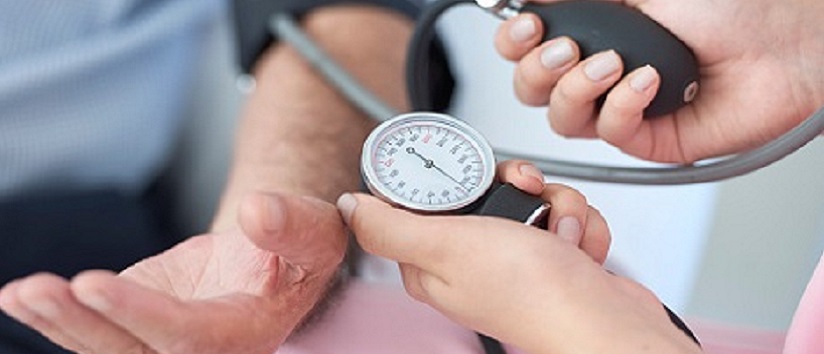Pavilion Publishing and Media Ltd
Blue Sky Offices Shoreham, 25 Cecil Pashley Way, Shoreham-by-Sea, West Sussex, BN43 5FF, UNITED KINGDOM
COVID-19 current figures
Current UK cases: 25,150 are confirmed as positive
Numbers tested: 143,186 people have been tested in the UK
1,789 patients in the UK who tested positive for coronavirus (COVID-19) have died
(Source: DHSC: As of 9am on 31 March 2020/death figures of 5pm on 30 March 2020)
Global situation report: 693,224 confirmed (58,411) 33,106 deaths (3,215)
Western Pacific Region: 103,775 confirmed (987) 3,649 deaths (23) )
European Region: 392,757 confirmed (31,726) 23,962 deaths (2,535)
South-East Asia: 4,084 confirmed (375) 158 deaths (19)
Eastern Mediterranean Region: 46,329 confirmed (3,552) 2,813 deaths (145)
Regions of the Americas: 142,081 confirmed (21,289) 2,457 deaths (484)
African Region: 3486 confirmed (482) 60 deaths (09)
(Source: World Health Organization)
Latest COVID-19 headlines
Urgent action needed to protect the health and social care workforce
Organisations representing the community health and social care workforce across Scotland have today written jointly to the Cabinet Secretary for Health and Sport to call for urgent action to be taken to protect those caring for the most sick and vulnerable within communities across Scotland during the coronavirus pandemic.
The Royal College of General Practitioners Scotland (RCGP Scotland), the Royal College of Nursing Scotland (RCN Scotland) and Scottish Care have together written to the Cabinet Secretary to call for urgent action to be taken over the level of Personal Protective Equipment (PPE) being supplied to health and social care workers caring for the most vulnerable in communities across Scotland.
The organisations are calling for the updated guidance on PPE, which is due to be issued shortly, to recommend a consistent approach regarding the level of PPE required across both acute and community settings. They have also called for assurances that the further stocks of PPE which have now been issued reach those areas of the health and social care sector that need it most €“ with community care receiving its fair share.
ACE inhibitors and ARBs: use in COVID-19 hypertensive patients
Physicians, healthcare professionals, researchers, and patients are actively debating the potential influence of angiotensin-converting enzyme inhibitors (ACEIs) and angiotensin receptor blockers (ARBs) in patients during the COVID-19 outbreak. One of the ways the virus enters the body is through ACE2, the enzyme that converts angiotensin I to angiotensin II in the lungs and other tissues and organs, suggesting to some that the drugs may increase susceptibility to the virus and severity of the disease.
In a new review published in Mayo Clinic Proceedings, a group of scientists who have been working on the frontlines fighting the deadly virus in Spain, Italy, and the US, dissect the controversy in considerable detail, to explain the level of evidence on this topic for clinicians.
“In agreement with current guidelines, we recommend patients with hypertension should continue taking anti-hypertensive medications without interruption,” says lead author Fabian Sanchis-Gomar, MD, PhD, of the Department of Physiology, Faculty of Medicine, University of Valencia and INCLIVA Biomedical Research Institute, Valencia, Spain; and Division of Cardiovascular Medicine, Stanford University School of Medicine, Stanford, CA, USA.
After in-depth review of more than 60 published studies, Dr. Sanchis-Gomar and his coauthors conclude that, importantly, no studies have reported an increase in circulating ACE2 levels or expression thus far, and increased expression would not necessarily imply an increased risk of infection or disease severity. The authors note, however, that much more research and evidence are needed.
BMA warns of ‘fatal’ consequences of treating patients without adequate Covid-19 protection
The BMA is seeking clarity from the Government on what it is that healthcare staff should do and, particularly, what risks they should not have to take if they do not have adequate personal protective equipment (PPE).
This follows comments from the Communities Secretary, Robert Jenrick, who said that €˜we cannot and should not ask healthcare workers to be on the frontline without appropriate protective equipment’, as he confirmed that the delivery of €˜millions’ of masks, gloves, eye protectors and gowns was already underway.
The doctors’ union is warning that the health of doctors and patients is still being placed at considerable risk as many hospitals and GP practices continue to face life-threatening shortages of personal protective equipment, despite the assurances from the Government that enough would be delivered.
Over the past weekend, the BMA has continued to receive reports of doctors and NHS workers who do not have adequate PPE in hospitals and GP practices across the country.
New guide on promoting mental wellbeing for older people
NICE and the Social Care Institute for Excellence have created a quick guide for care home managers entitled Promoting positive mental wellbeing for older people.
It says that older people, including those living in care homes, often experience depression, loneliness and low levels of satisfaction and wellbeing. Taking part in meaningful activities, maintaining and developing personal identity, and getting the right help for any health conditions and sensory impairments have been identified as key to improving mental wellbeing.
The guide covers: personal identity, meaningful activity, health and mental wellbeing and access to healthcare.
Other news round up
- Spain records 849 deaths in one day
- Italy extends lock down until Easter and reports 812 deaths
- Airport Operators Association calls for government assistance for airports
- A 12-year-old girl from Belgium is thought to be the youngest victim in Europe
- Sierra Leone has confirmed its first case of coronavirus




Comments are closed.